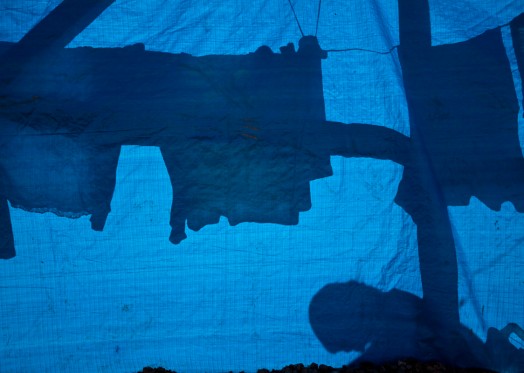On the verge of the Caliphate

The last check point is a maze of sand and gravel mounds at the end of an empty road. Heavily armed kurdish peshmergas are positioned on the ridge of a barren hill looking at the town of Jalawlah, now in the hands of the Is, just two kilometres away: I can see the the minarets and the greenish valley below the setting sun. Here is where I start my journey along the murky borders of the Caliphate, which stretches from this outpost in the Dyala province northeast of Baghdad to the vast plains of the Tigris and the Euphrates, from the ancient city of Mosul to the outskirts of Alep.
Geography must be redefined along these new sectarian boundaries. The war is raging in Syria and the dream of a united Iraq has been shattered long ago. Civilians are savegely targeted, children are abducted and abused, women are raped and sold as slaves, religious minorities are wiped out. Millions who lost their homes are on the move, seeking shelter abroad and in the refugee tents. I visited several camps in this part of Kurdistan close to the Iranian border: crowded dusty and muddy fields, some provided with toilets and containers, others in dire conditions, with no electricity, no sewages, no schools, no health posts. Msf and Emergency, the Italian ngo, are struggling to enter the camps and start to hand out some needed help to the Syrian refugees and the Iraqi IDPs. But political wranglings, insecurity and the impending winter season are complicating factors.
Whilst safety is not an issue in the Kurdish strongholds of Erbil, Dohuk and Sulaymaniyah, things are quite different in Kirkuk and here at the fringe of Dyala, where the frontline cuts into a mix of Kurdish and Arab population, both shia and sunni, with shadowy tribal links and unclear leanings. Yesterday I was in the rural village of Kulajo when a carbomb exploded a few hundred metres from a refugee camp: the suicide attack razed two buildings of the security forces, leaving four dead and fourteen wounded. The body of the bomber laid on the ground, shreded in bloody flesh scraps.
Up north, in the Ankawa district of Erbil, I witness another tragedy: crammed in the churches, on the sport grounds and in sordid unfinished buildings the Christians who fled Mosul and the Niniveh plain swear they’ll never go back. The exodus, which started soon after the fall of Saddam in 2003, is relentless and has become a huge wave since the Is swept through their villages this summer, demanding they convert to Islam, pay taxes or face death. The Christian population of Iraq has already shrunk from more than one million to 300,000 or less; and thousands of others are fleeing the worn-torn Syrian cities of Homs and Alep. “Let’s not be deceived” says Father Douglas of the Mar Elia caldean church, who was himself kidnapped and tortured in Baghdad in 2006. “After 2,000 years Christianity is finished in this part of the world”.





